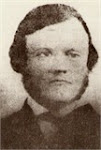Samuel Pepys: The Unequalled Self by Claire Tomalin
2 of 2 people found the following review helpful:
The Amazing Rise of a Hard Working Rump Smoocher, December 7, 2007
Claire Tomalin's Samuel Pepys: The Unequalled Self is quite simply one of the best reads in history, biography or any other genre in a long time. It deservedly carried off the Whitbread Book of the Year in 2002. Pepys lived through the tumultuous changes of the 17th century from Charles I to the Commonwealth and back to Charles II and James II and finally through the Glorious Revolution that brought the Dutch William III to the English crown. That century contained plagues, the great London fire, revolution, counterrevolution, and the emergence of science. Pepys experienced it all and for some 9 years wrote a comprehensive, perceptive, and extremely candid diary.
Tomalin's story rather naturally divides into three parts: pre-diary years, the diary years from 1660-1669, and the post-diary years when Pepys reached his greatest heights and suffered his greatest losses, personal and professional. In the first and last parts Tomalin gives us an excellent if fairly standard biography, but one informed by the incredible detail and honesty of the diary years.
When the reader reaches the end of the diary years one feels a sense of deprivation, a sense almost of being cheated. Pepys has drawn the curtain closed and we are no longer privy to the intimate details of Pepys daily activities at court, in the street, in the bedroom. Tomalin's own sense of loss is palpable.
Pepys began life as the son of London tailor and managed to reach the highest levels of English government as an advisor to kings by dint of hard work and obsequious obeisance to a number of benefactors, beginning with Edward Montague. An assiduous rump smoocher was he. Along the way he switched from being a supporter of Cromwell and Parliament to backing Charles II and James II. As a high-level naval official he instituted many practices that made the Royal Navy the greatest in the world. Unfortunately for Pepys, Charles II was a wastrel and James II an open Catholic whose religion cost him his crown. His connection to them cost him some time in the Tower of London.
There are many diaries, but few that are as perceptive and honest as Pepys' or as fruitful at sweeping in the details of daily life in mid-1600s England. According to Tomalin, Pepys diary gives more detail about the life of young working class girls and women, the maids, cooks, and serving girls, as almost any other source. Pepys also had a strong appetite for women and he did not hesitate to use his position to get what he desired, which he also details in his diary.
Pepys' diary and his own achievements show him as a remarkably energetic man with a strongly curious mind. Although not a scientist himself Pepys had a curious mind and also belonged to the Royal Society serving a term as its president. Pepys displays a willingness to work and to fawn as necessary in order to advance. The diary also shows him as a frequent sexual harasser (although his behavior may have been within the norms of the day at least as far as the men were concerned). And while he excelled at his work, he also was not above taking a bit of an "inducement" on the side. We would call these payments bribes, but Pepys seems to have viewed them more like service charges and he seems not to have acted contrary to the navy's best interests. These bribes were usually in pound notes (often sizable), but he also had a long-running arrangement with a ship's captain for free access to the sexual favors of the captain's wife (Her name: Mrs. Bagwell!).
What is truly remarkable is that we know all these things and know them to be true for a certainty only because Pepys wrote them in his diary, a diary that it is generally believed Pepys fully intended to be publicly read some day (he included the six volumes in his library that he bequeathed it to Magdalene College, Cambridge).
Highest recommendation.
Sunday, December 23, 2007
Subscribe to:
Post Comments (Atom)
















No comments:
Post a Comment